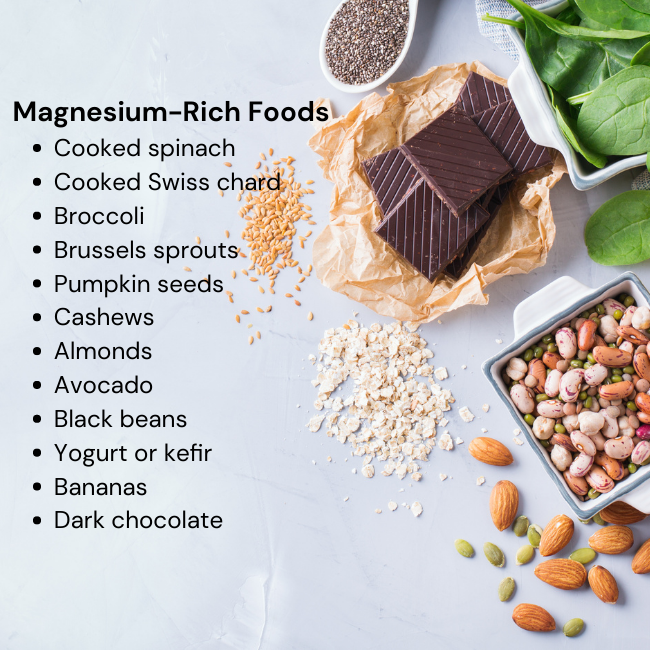Nature’s Miracle Mineral
Magnesium is essential for life and is required for enzyme and hormone production, balance and release. Magnesium is also a key element in regulating brain health, cortisol, muscle and nerve function, reproduction, blood pressure regulation, DNA, RNA, and protein synthesis, cellular energy production and adrenal balance, healthy emotional response systems, digestion, thyroid balance, memory, sleep, heart health and so much more.
Our ancestors used to eat a wild diet rich in magnesium. In today’s world, our grains, protein sources and produce are genetically manipulated or modified. This change in the way nature intended reduces nutrition by 30%+. Not everyone can afford organic non-gmo.
With the lack of good magnesium in our diet and supplementation that is laboratory produced for money-making and profit, we still will not get enough magnesium.
Have you ever gone to a store to buy a supplement that was suggested to you in an article or by a friend for a specific symptom and found yourself confused by all the formulations and brands to choose from? You could easily harm your health further if you don’t know what it is you’re taking.
Note to the wise – Never EVER blindly take a shot, medication, supplement, or ingest anything that you do not know everything about it including what is in it, the benefits and the side effects! Be mindful that doctors only refer to something called the “Physicians Desk Reference” for a cross-reference of symptoms to medications. A good physician will know the side effects when you ask them! And ASK THEM. But some will not disclose all the nasty side effects, so make sure to consult mayoclinic.org or google side effects before you begin a new supplement or prescription.
Magnesium Deficiency
Over 50% of the population is magnesium deficient. Stress, exercise, diarrhea and other factors can deplete your body of magnesium. Some metabolic enhancing supplements can deplete your body of magnesium. Coffee drinkers are particularly at risk as coffee tends to not only deplete your body of calcium but as a diuretic, it can drain your body of electrolytes including magnesium.
Symptoms of magnesium deficiency include:
- Leg cramps – charlie horse cramps
- insomnia
- autoimmune disease
- fibromyalgia
- anxiety
- high blood pressure
- type 2 diabetes
- fatigue
- migraines
- osteoporosis
- bone spurs
- poor dental integrity
- constipation
- poor concentration
Recommended Dietary Allowances for adults:
- Men: 400–420 mg
- Women: 310–320 mg
How much magnesium is in your food?
- Sunflower seeds, raw – hulled: Service Size 1/2 cup, 227 mg
- Pumpkin seed – kernels: Serving Size 1 oz, 168 mg
- Almonds, dry roasted: Serving Size 1 oz, 80 mg
- Spinach, boiled: Serving Size ½ cup, 78 mg
- Cashews, dry roasted: Serving Size 1 oz, 74 mg
- Pumpkin seeds in shell: Serving Size 1 oz, 74 mg
- Black beans, cooked: Serving Size ½ cup, 60 mg
- Edamame, shelled, cooked: Serving Size ½ cup, 50 mg
- Dark chocolate -60-69% cacoa: Serving Size 1 oz, 50 mg
- Peanut butter, smooth: Serving Size 2 tablespoons, 49 mg
- Bread, sprouted wheat: Serving Size 1 slices, 45 mg
- Avocado, whole: Serving Size 1 cup, 44 mg
- Potato, baked with skin: Serving Size 3.5 oz, 43 mg
- Rice, brown, cooked: Serving Size ½ cup, 42 mg
- Yogurt, plain, low fat: Serving Size 8 oz, 42 mg
- Oatmeal, sprouted: Serving Size 1/4 cup, 40 mg
- Kidney beans, canned: Serving Size ½ cup, 35 mg
- Banana: Serving Size 1 medium, 32 mg
- Cocoa powder– unsweetened: Serving Size 1 tablespoon, 27 mg
- Salmon, Atlantic, farmed: Serving Size 3 oz, 26 mg
- Milk: Serving Size 1 cup, 24–27 mg
- Halibut, cooked: Serving Size 3 oz, 24 mg
- Raisins: Serving Size ½ cup, 23 mg
- Chicken breast, roasted: Serving Size 3 oz, 22 mg
- Beef, ground, 90% lean: Serving Size 3 oz, 20 mg
- Broccoli, chopped & cooked: Serving Size ½ cup, 12 mg
- Rice, white, cooked: Serving Size ½ cup, 10 mg
- Apple: Serving Size 1 medium, 9 mg
- Carrot, raw: Serving Size 1 medium, 7 mg
Recommended Products
Take the first step toward a happier and healthier life with a
FREE
30 min no-obligation face-to-face or online consulting session.
Remember that you need to read all labels, including the “inactive” filler ingredients. Sometimes the solution in a vaccination, coating on a vitamin, over-the-counter medication or prescription can cause an undesirable reaction or repercussion that may ruin your day or worse, ruin your health! Doctors are trained to medicate, not heal, YOU are the one in control of your health and always have the right to ask questions or say NO!
What Kind of Magnesium is the Right Choice for me?
Magnesium Oxide
This form is the most prescribed by doctors. It is lab-created and derived from the base of magnesium but patented and can be prescribed. Natural occurring elements cannot be prescribed, only recommended.
Magnesium oxide is regularly prescribed as an antacid to relieve heartburn, sour stomach, or acid indigestion. It also may be used as a laxative for short-term use only, rapid emptying of the bowel (before surgery, for example). This form of magnesium is not bio-identical and is less absorbed by the body. It should not be used repeatedly as it could cause toxicity, damage to liver or digestive track or both.
Magnesium Citrate
Magnesium citrate is magnesium + citric acid and usually comes in a saline or liquid form. It is very much like oxide with similar side effects, indications with one exception. It can actually cause a reverse effect after use by creating even more constipation symptoms.
 Magnesium Chelate
Magnesium Chelate
This form is highly absorbable by the body, the most natural form. It easily bonds to amino acids.
Magnesium Glycinate
This is a chelated form of magnesium that tends to provide high levels of absorption and bioavailability and is typically considered ideal for those who are trying to correct a deficiency.
Magnesium Threonate
It is a newer, emerging type of magnesium supplement that appears promising, primarily due to its superior ability to penetrate the mitochondrial membrane, and may be the best magnesium supplement on the market.
Magnesium Chloride Oil
This magnesium is in oil form. It can pass through the skin and into the body. For those who struggle with digestive issues like malabsorption or have had their intestines removed, this is the best form of magnesium to take.







